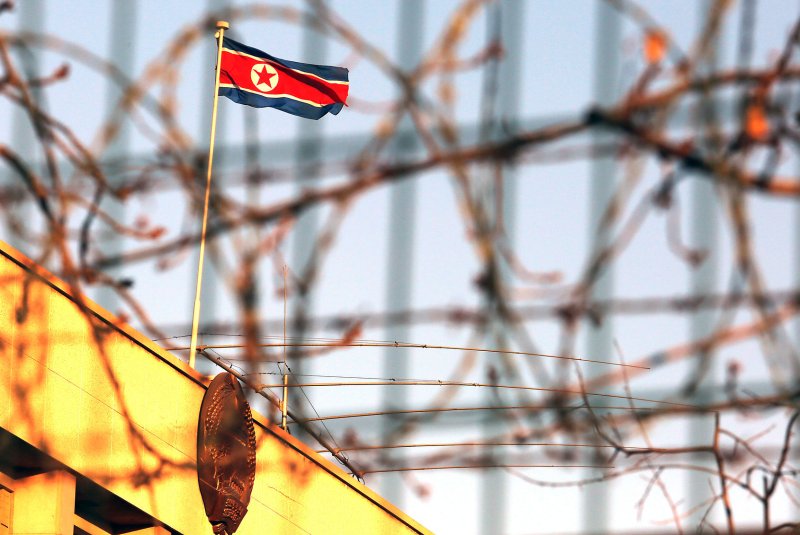South Korea's human rights chief called on China Friday not to repatriate up to 2,000 North Korean defectors that it has been detaining during COVID-19 border closures. File Photo by Stephen Shaver/UPI |
License Photo
SEOUL, June 23 (UPI) -- The head of South Korea's human rights watchdog group urged China on Friday not to repatriate thousands of detained North Korean escapees after borders are reopened, echoing growing concerns from the international community that a return is imminent.
Song Doo-hwan, chairman of the National Human Rights Commission of Korea, said in a statement that the North Korean escapees would face severe threats if returned.
"Despite the U.N.'s recommendation to stop the forced repatriation of North Korean defectors in China, reports have recently emerged in the media that the forced repatriation of 2,000 North Korean defectors held in Chinese detention facilities is imminent," Song said.
"North Koreans are subjected to serious human rights violations, including torture, detention, forced labor and execution if they are caught fleeing or forcibly returned to North Korea by China," he said.
At a U.S. Congressional hearing last week, lawmakers and witnesses urged China to fulfill its international obligations to protect the escapees as asylum seekers amid speculation that North Korea will soon lift COVID-19 border closures that have been in place since January 2020.
U.N. Special Rapporteur on North Korean Human Rights Elizabeth Salmon said last year that the estimated 2,000 escapees being detained in China are classified as "illegal migrants" and not given refugee protections.
The defectors are specifically targeted for torture when they are returned to North Korea, Seoul-based rights group Database Center for North Korean Human Rights, or NKDB, said.
"The most commonly reported cases of torture are linked to those who have been forcibly repatriated from China to North Korea, and so that's the most obvious thing that we are fearing will happen," Hanna Song, NKDB's director of international cooperation, told UPI.
Song added that the conditions in the Chinese detention centers are also a source of concern.
"We assume that China is not providing [the escapees] with the necessary medical treatment, and they are probably also malnourished," she said. "When they are in such a weak state, if they are forcibly repatriated and are going into even worse conditions, that is something that we would remain very concerned about."
Economic activity between North Korea and China has been on the rise, with cumulative trade between the two countries reaching $874 million over the first five months of 2023, up 174% from a year earlier, according to Chinese customs data.
Persistent reports of severe food shortages in North Korea have led observers to conclude that a wider border reopening is on the way.
"There are credible rumors that the North Korea-China border will reopen soon because North Korea, which is facing more starvation ... must increase exports to, and imports from, China," Suzanne Scholte, chair of the North Korea Freedom Coalition, said in Congressional testimony last week.
"The terrifying fear for all of us human rights advocates is that China's first export to North Korea will be the nearly 2,000 North Korean children, women and men currently detained," she said.















